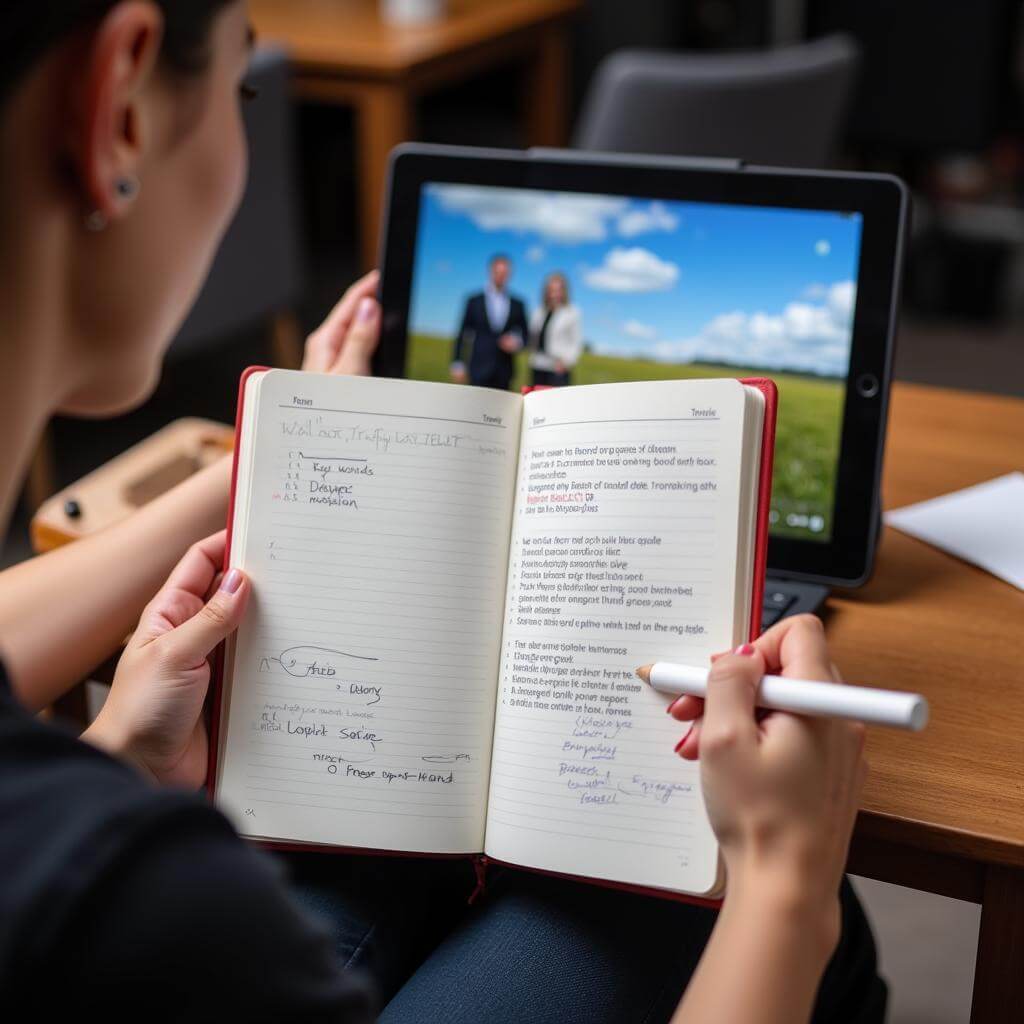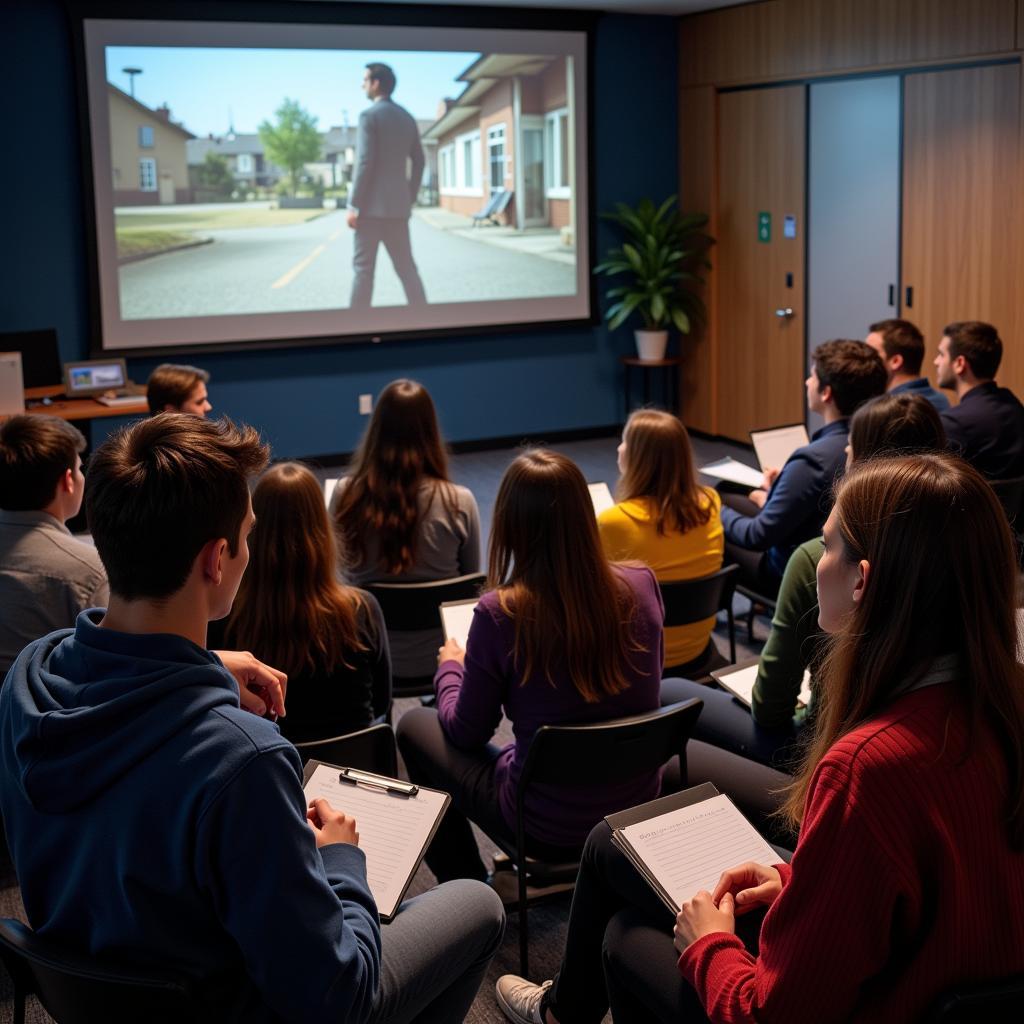Are you looking for an engaging way to improve your IELTS listening skills? Look no further than your favorite films and TV shows! As an experienced IELTS instructor, I’ve found that incorporating movies and television series into your study routine can significantly enhance your listening abilities. Let’s explore how you can effectively practice IELTS listening with these entertaining resources.
Why Use Films and TV Shows for IELTS Listening Practice?
Before we dive into the specific strategies, it’s important to understand why films and TV shows are excellent tools for IELTS listening practice:
- Authentic language: They expose you to natural, conversational English.
- Diverse accents: You’ll hear a variety of accents, crucial for the IELTS test.
- Context-rich scenarios: Visual cues help with comprehension.
- Engaging content: Makes learning more enjoyable and motivating.
Strategies for Effective Practice
1. Choose Appropriate Content
Not all films and TV shows are created equal when it comes to IELTS listening practice. Here’s how to select the best content:
- Start with genres that match IELTS topics (e.g., documentaries, news programs)
- Gradually increase difficulty levels
- Look for clear audio and well-articulated speech
- Choose content with available subtitles or transcripts
“Selecting the right material is half the battle. Aim for content that challenges you without overwhelming you,” advises Dr. Emma Thompson, IELTS examiner and language acquisition expert.
2. Active Listening Techniques
To make the most of your practice sessions, employ these active listening strategies:
- Watch without subtitles first
- Take notes on key information
- Pause and rewind to clarify unclear points
- Focusing on speaker’s subtle hints can greatly improve your comprehension
3. Targeted Listening Exercises
Transform your viewing experience into structured practice:
- Predict content before watching scenes
- Answer self-created questions about the content
- Summarize main points after each scene or episode
- Identify and note down new vocabulary or expressions
 Note-taking During IELTS Listening Practice
Note-taking During IELTS Listening Practice
4. Accent Familiarization
IELTS listening tests feature various accents. Use films and TV shows to:
- Expose yourself to different English accents (British, American, Australian, etc.)
- Prepare for unfamiliar accents by watching international productions
- Practice identifying key information despite accent variations
5. Improve Concentration Skills
How to avoid distractions from background noise in IELTS listening is crucial. Use these techniques:
- Start with quieter scenes and gradually move to noisier ones
- Practice focusing on dialogue amidst background music or sound effects
- Set time limits for focused listening, gradually increasing duration
Advanced Techniques for IELTS Listening Mastery
Once you’ve mastered the basics, try these advanced strategies:
1. Shadowing
Repeat dialogues in real-time to improve pronunciation and listening speed.
2. Transcription Practice
Transcribe short scenes to enhance your ability to catch every word.
3. Analyze Discourse Markers
Pay attention to transitional phrases and linking words used in conversations.
4. Cultural Context Analysis
Note how cultural references impact communication and understanding.
 IELTS Listening Practice Group Session
IELTS Listening Practice Group Session
Integrating Film and TV Practice with IELTS Preparation
To ensure your practice aligns with IELTS requirements:
- Time your listening sessions to match IELTS test durations
- Create question types similar to those in IELTS (multiple choice, gap-filling)
- Practice transferring answers to an answer sheet quickly and accurately
- Combine listening practice with speaking by discussing the content afterward
“Regular, varied practice using films and TV shows can significantly boost your IELTS listening performance,” says Mark Roberts, IELTS preparation course coordinator at Cambridge University.
Common Pitfalls to Avoid
Be aware of these potential issues when using films and TV for IELTS practice:
- Over-reliance on subtitles
- Choosing content that’s too difficult or easy
- Neglecting other IELTS listening practice materials
- Focusing more on entertainment than learning
How to use TV series to practice for IELTS listening effectively requires balance and discipline.
Conclusion
Incorporating films and TV shows into your IELTS listening practice can be both effective and enjoyable. By following these strategies and consistently applying them, you’ll not only improve your listening skills but also enhance your overall English proficiency. Remember, the key to success is regular practice and gradual progression. So, grab your popcorn, settle in, and start turning your entertainment time into valuable IELTS preparation!
Improving overall listening fluency is a journey, and with these film and TV show techniques, you’re well on your way to IELTS success. Happy listening!
FAQ
How often should I practice IELTS listening with films and TV shows?
Aim for at least 30 minutes daily, gradually increasing as you build stamina.
Can watching movies with subtitles help with IELTS listening?
While subtitles can be useful initially, it’s important to practice without them to simulate test conditions.
What types of TV shows are best for IELTS listening practice?
Documentaries, news programs, and talk shows are excellent choices as they often cover topics similar to those in IELTS.
How can I measure my progress when practicing with films and TV shows?
Keep a log of your practice sessions, noting improvements in comprehension and the complexity of content you can understand.
Is it better to watch entire movies or short clips for IELTS practice?
Both have benefits. Short clips allow for focused, repeated practice, while full movies build endurance and provide more context.
Can listening to podcasts be as effective as watching films for IELTS practice?
Podcasts are also valuable, especially for practicing without visual cues, but films offer the advantage of visual context.
How can I create IELTS-style questions from films and TV shows?
Pay attention to key information, dates, numbers, and opinions expressed, then formulate questions similar to those in IELTS practice tests.


